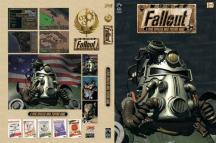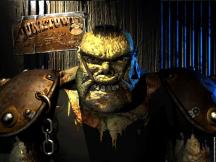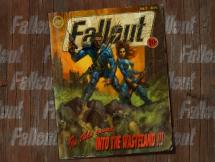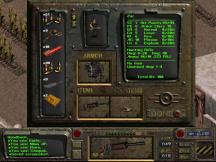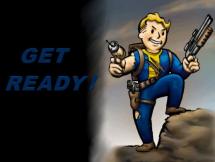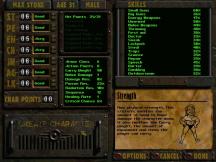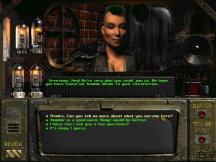Falling For Fallout: A (Post-Nuclear RPG) Retrospective
Eight years ago in a studio apartment far, far away…
I guess I’m what you might call a “late bloomer”. I didn’t care about grades until my Junior year of High School. I didn’t have a serious relationship until my second year of college. And, here’s the kicker, I didn’t get my first computer until my first year out of the Coast Guard. The year was 1998. The Beastie Boys were belting out Intergalactic across the airwaves, Saving Private Ryan changed the way a new generation looked at war and the way many FPS games are made, and Windows 98 continued Microsoft’s time-honored tradition of gifting us with the infamous “blue screen of death”. Following in a long tradition of firsts, I felt it only fitting that I should select for my opening article here at RPGWatch a retrospective on the first CRPG I have ever played. Though the game gobbled up my quantifiably limited hard drive space with the ‘humungous’ installation option and a year had already passed since it went gold, 1998 was the year I fell for Fallout.
“War. War never changes…”
I know it’s cliché to start a Fallout article with that endearing quote, but can you think of any words more fitting? I sure can’t. An unmistakable chill went up my high-back leather chair-cushioned spine the moment Ron Pearlman (yes, Hellboy himself!) spoke those words immortal to CRPGers everywhere old enough to remember them. How does one define a game like Fallout? Wow! It’s an eclectic collection of “what-ifs”, “where-tos” and Easter eggs…lots and lots of Easter eggs. It’s the past, the present and the future. It’s science fiction and it’s fantasy with a tinge of reality as often uproarious as terrifying. It was the impetus of a new CRPG development company and the inauguration of a new era in CRPG design and story telling. Perhaps most importantly, however, Fallout is arguably the Godfather of witty, innovative computer gaming as we know it today.
It all began with a natural transition from paper to processor…
Though in its own right Fallout blossomed into a cornerstone of groundbreaking computer gameplay, its roots really are in pen and paper gameplay. The history of Fallout starts not with its creation, nor with its conception, but, rather, with another classic CRPG which took Commodore 64s, Apple IIs and Disk Operating Systems by acid rain storm way back in 1988 with its 5¼ inch floppy disk and printed and numbered gameplay-enhancing “paragraphs”. Developed by Interplay and published by Electronic Arts, Wasteland was an award winning title which placed a small group of player-controlled Desert Rangers smack-dab in the middle of the 21st century to endure in a world devastated by the aftermath of a nuclear war between the United States and Russia. The natural transition from pen and paper gameplay to computer gameplay is clearly shown when you consider that Michael Stackpole and Ken St. Andre used what they learned in designing the timeless PnP originals Mercenaries, Spies and Private Eyes and Tunnels and Trolls when helping to develop Wasteland’s game mechanics.
“The Unity will bring above the master race. Master! One able to survive, or even thrive, in the wasteland…”
Some have speculated that Fallout came about as a social commentary in relation to real world terrorism and growing fears of the end of days with the fast approaching new millennium. An intriguing notion, but seriously folks, it’s a game, not CNN. Anyway, it’s certainly no coincidence that Fallout was released during the 10th anniversary of Wasteland. In fact, there is a certain character encountered in the game by the name of Tycho. Starting up a conversation with him will reveal that he is a Desert Ranger AND that, in so many words, his grandfather was fast friends with one “Fat Freddy”, a character from the Las Vegas area of Wasteland. Developers have denied up and down that Fallout shares Wasteland’s universe, yet Fallout has become easily identified as the “spiritual successor” to Wasteland.
Bring us your huddled pop culture references yearning to be in a CRPG…
Wasteland’s obvious influence on Fallout’s uniquely eclectic style is just a drop in the bucket compared to that of other forms of pop culture media. Subtle and not so subtle references to 1950’s and 1960’s television, movies, comics and literature all made their way into Fallout in one form or another. Inspired by heroic multi-media icons of the era such as Batman, Superman and Flash Gordon, we clearly see brightly colored jumpsuits, vacuum tube computers and, of course, gitchy, oversized toy-like ray guns. Even Fallout’s overall story and artwork are heavily inspired by the “duck and cover” nuclear scare era of a frightened 1950’s America. On the international scene, those lucky enough may see Fallout Easter egg homages to such cult classic TV and movie characters as Doctor Who from England (originating in the 1960’s) and Godzilla from Japan (originating in the 1950’s).
“Mutants. They were everywhere. Seems you couldn't fart without hitting one…”
Fallout’s universal pop culture references do not end with the hip 50’s and groovy 60’s eras. What do a NPC/potential party member named Ian who wears a travel-worn leather jacket and a strangely lovable, iguana-on-a-stick munching mutt named Dogmeat have in common? Why, what can arguably be considered the definitive cult classic post-apocalyptic action movie, Mad Max, of course - circa 1979 and staring Mel Gibson…you know, back when he only acted like a lunatic on screen rather than in public. Other such in-game witty allusions to classic and contemporary pop culture include the character sheets and perks “cards” which bear a more than striking resemblance to the Chance and Community Chest cards used in the timeless Monopoly board game which has been in circulation since 1935; and the Red Ryder BB Gun from the movie A Christmas Story (1983) known for the immortal line, “You’ll shoot your eye out, kid.”
Mutant mother and vault dweller daughter reunite! Next, on a very SPECIAL ‘Into The Wasteland’…
Although they are essential to the success of any CRPG, it takes more than an engrossing storyline and engaging settings to make such a game truly “special” in the eyes and hearts of the CRPG community, and that’s where Fallout’s one of a kind SPECIAL character-creation system comes into play. SPECIAL is an acronym, indicative of the seven attributes used to describe Fallout characters: Strength, Perception, Endurance, Charisma, Intelligence, Agility, and Luck. Besides the attributes, the SPECIAL system also involves a long list of Skills (represented as percentages and any of which can be increased at anytime) and numerous Perks (which give the players the opportunity to actually bend the rules a bit). Exclusive to the Fallout series*, this system, coupled with Fallout’s non-linear gameplay, consequential actions and multiple choice conversations, makes revisiting the wastelands not only an unlimited prospect, but a genuinely pleasurable one as well.
First-rate voiceovers, multiple carryovers, console crossovers and many, many crossed fingers…
Much of Fallout’s significant success is due to the talented contribution of its voice actors and that success has led to sequels, spin-offs and even console crossovers. Such easily recognizable names as Ron Perlman, Richard Dean Anderson and Tony Shaloub have all lent their voices to enrich the player’s conversations with key NPCs in the Fallout universe. Fallout’s overwhelming achievement spawned Fallout 2, Fallout Tactics: Brotherhood of Steel, Fallout: Brotherhood of Steel (for the Xbox and PlayStation 2) and Fallout: Warfare (a board game based on the Fallout: Tactics storyline).
What the future holds for the Fallout franchise remains to be seen, but there exists the possibility of a Fallout MMO under the banner of Interplay which, if done right, would stand a very good chance of hanging tough with the big boys like World of Warcraft and EverQuest. Speaking of “if done right”, Fallout 3 is currently in pre-production, but being developed by Bethesda Softworks, this incarnation of a beloved series has raised a great deal of controversy and concern among fans, myself included. Only time will tell if Bethesda lives up to the quality and complexity Fallout 1 and 2 are known for, or sells out to the lowest common denominator for a quick buck.
“May-be you'll think of me…”
While the undeniably endearing quality of Fallout has inspired these sequels and spin-offs, each one reinventing its predecessors, it was the original which had so amply eased my uncertain transition from console gamer to PC gamer. It is upon that which I have reminisced most fondly in all my years of gaming and which I will continue to in all my gaming years to come. So, from the viewpoint of a self-professed post-nuclear Fallout Boy in disguise, I thank the creators of Wasteland whose original style made possible Fallout and I thank the creators of Fallout whose playable vision was the catalyst for my unhealthy, yet cherished, obsession for CRPGs. But most importantly, I thank you the reader for your indulgence of an old-school gamer’s ramblings. As always, comments on this or any of my articles are welcome.
All images used in this article are courtesy of No Mutants Allowed @ http://www.nma-fallout.com/
Many facts and speculations in this article were found using Wikipedia.
*Variants of the SPECIAL system were used in Lionheart and two canceled games, TORN and Deadlands.
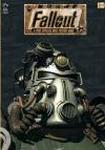
Information about
Fallout: A Post Nuclear Role Playing GameDeveloper: Interplay
SP/MP: Single-player
Setting: Post-Apoc
Genre: RPG
Combat: Turn-based
Play-time: 20-40 hours
Voice-acting: Partially voiced
Regions & platforms
North America
· Homepage
· Platform: PC
· Released: 1997-09-30
· Publisher: Interplay
More information


